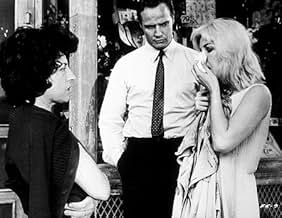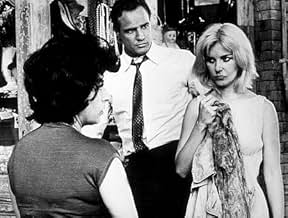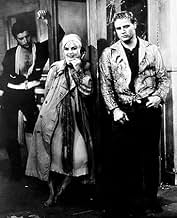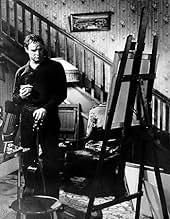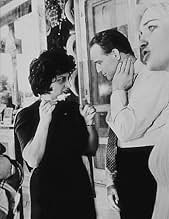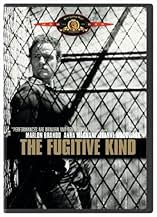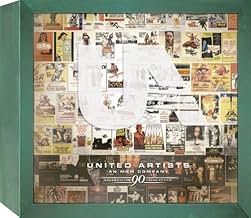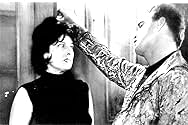Füge eine Handlung in deiner Sprache hinzuValentine "Snakeskin" Xavier, a trouble-prone drifter trying to go straight, wanders into a small Mississippi town looking for a simple and honest life but finds himself embroiled with probl... Alles lesenValentine "Snakeskin" Xavier, a trouble-prone drifter trying to go straight, wanders into a small Mississippi town looking for a simple and honest life but finds himself embroiled with problem-filled women.Valentine "Snakeskin" Xavier, a trouble-prone drifter trying to go straight, wanders into a small Mississippi town looking for a simple and honest life but finds himself embroiled with problem-filled women.
- Auszeichnungen
- 2 wins total
- Ruby Lightfoot
- (as Spivy)
- Bit Part
- (Nicht genannt)
Handlung
WUSSTEST DU SCHON:
- WissenswertesMarlon Brando described Anna Magnani as being equally fiery and passionate off screen. He claimed she made a pass at him in a hotel before filming began.
- PatzerAt the cemetery, Xavier returns to the car and turns on its headlights. A much brighter studio light comes on a beat too late to further illuminate the right side of the frame.
- Zitate
Lady Torrance: Tell me some more about your self-control.
Valentine Xavier: Well, they say that a woman can burn a man down, you know? But I can burn a woman down. I'm saying that I could. I'm not saying I would.
Lady Torrance: What's the matter? Have they tired you out?
Valentine Xavier: No, I'm not tired.
This is one of those great movies that slips its way into that big gap between the great Hollywood Golden Age to the great New Hollywood of the late 1960s. An awful lot of films from the period between (1955-65) are weak or even downright bad, big budgets and all. The Hollywood gems in that time are usually a little gut wrenching, and many are based on plays, or push political issues (I'm thinking of "The Apartment" and "The Manchurian Candidate"). The famous directors coming to their own during time include Elia Kazan and Robert Wise, and of course Sidney Lumet, who directed this one.
This is all working class, plainspeaking, emotive material. Right from the get-go with leading man Marlon Brando doing a long take as he stands before a judge, we are filled with heart-wrenching stuff, people who want to be something and don't know how, or people with big hearts that are broken or dirty. The cast, beyond Brando, is terrific: Joanne Woodward as a young floozy with a sharp sense of independence, Maureen Stapleton as a simple and faith filled wife of the sheriff, and Anna Magnani, intense and troubled but superior in her own out of place way.
There are powerful displays of white narrow-mindedness (call it bigotry, but it is largely aimed at just anyone they don't like) that don't quite fall into clichés, there is love that shouldn't be and that never is, there is old world morality and inbred local gossipy immorality. Things are bound for collision even by twenty minutes in, and there are innuendoes and hidden histories waiting to blossom.
Lumet has a knack for the serious, with his 1957 breakthrough film "12 Angry Men" a template for his career. As lively and even crazy as this movie is, it's also probing deeply into human woe and maladjustment (often deliberate). The core of the writing belongs to Tennessee Williams, who of course is all about inner troubles and outward misunderstood or mistaken actions. There is nothing superficial here, not in the acting, the filming, or the scenes (set in the South but filmed near Saratoga Springs, New York). And if the wet, dark nights scenes and interiors with people quarreling and fighting aren't enough to suck you in, the story, about wanting to live, nothing more, is beautiful and important. All four of the main characters are deeply good people, and all flawed in small but debilitating ways.
Which should sound familiar. As over the top as it sometimes seems, you'll identify with the position some of the people end up in. Brando is temperamental but patient and with a profound sense of justice. Woodward is a free spirit misunderstood (and punished) by the uptight and hypocritical society around her. The themes are frank for 1960, including an implication of a male so manly and irresistible the women want him (and get him) even when it's completely wrong. And when it's right. The sexuality, partly pumped up by the writing of the openly gay playwright (Williams), is all over Brando's face and in his scenes. And this is his movie.
High high drama, but from within. And explosive. Don't miss it.
- secondtake
- 15. Juni 2011
- Permalink
Top-Auswahl
- How long is The Fugitive Kind?Powered by Alexa
Details
Box Office
- Budget
- 2.000.000 $ (geschätzt)
- Laufzeit1 Stunde 59 Minuten
- Farbe
- Seitenverhältnis
- 1.66 : 1
Zu dieser Seite beitragen



